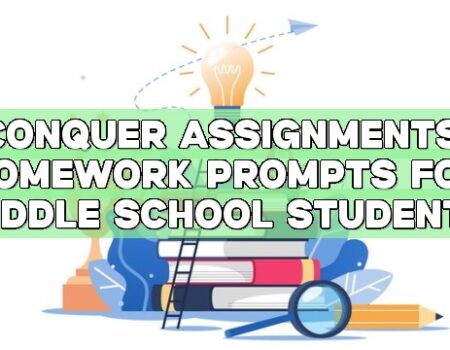Developing strong argumentative skills is crucial for high school students as it can benefit them not only academically but also in their future careers. Being able to construct sound arguments helps students to think critically, communicate persuasively, and defend their viewpoints effectively. To enhance these skills, high schoolers can practice with a variety of argumentative prompts, such as those provided by ChatGPT.
Whether it’s debating current events, discussing literature, or tackling social issues, practicing argumentation can have a positive impact on a student’s intellectual growth and confidence. By learning the basics of argumentation, students can build a solid foundation for constructing strong and persuasive arguments that are based on facts and logical reasoning.
Key Takeaways
- Developing strong argumentative skills is essential for high school students
- Practicing argumentation can benefit students academically and professionally
- ChatGPT provides a range of argumentative prompts for high schoolers to practice with
- Learning the basics of argumentation is crucial for building strong and persuasive arguments
Understanding the Basics of Argumentation
Effective argumentation involves presenting a claim and supporting it with well-researched evidence and sound reasoning. Students who develop strong argumentative skills can articulate their thoughts more persuasively, convey their viewpoints clearly, and engage in meaningful discussions where they can consider multiple perspectives objectively.
There are several fundamental elements of effective argumentation that high school students should understand:
| Element | Description |
|---|---|
| Claim | The assertion or statement that a person is trying to prove. |
| Evidence | The facts, statistics, or examples that support a claim. |
| Reasoning | The logical sequence of arguments that connect the claim to the evidence. |
| Counterarguments | The opposing viewpoints to the claim that must be acknowledged and refuted. |
Logical thinking is critical for effective argumentation. Students should understand how to analyze complex data, draw inferences, and evaluate the reliability of sources. They should be able to communicate persuasively by using rhetorical devices such as persuasive language, metaphors, and analogies.
Examples of effective argumentation:
“Although some people argue that homework is unnecessary, research shows that students who complete homework tend to perform better on tests and exams.”
This example demonstrates a clear and concise claim that is supported by evidence. The reasoning connects the claim to the evidence, and the writer acknowledges the opposing viewpoints by addressing them in the argument.
High school students can improve their argumentation skills by practicing with a variety of argumentative prompts and analyzing sample responses. The following sections will provide more information on how to do this effectively.
Exploring Argumentative Prompts
Using argumentative prompts can be an excellent way for high school students to develop their critical thinking and persuasive communication skills. Here are some sample prompts that students can use to practice their argumentative abilities:
- Should fast food restaurants be required to include calorie counts on their menus?
- Is social media beneficial or harmful to society?
- Should college athletes be paid?
- Is climate change a real threat, or is it a hoax?
- Do violent video games contribute to real-life violence?
- Should students be required to wear uniforms to school?
These prompts cover a range of topics, from current events to social issues to academic debates, so students can find one that interests them. Encourage students to research their chosen topic thoroughly and gather evidence to support their claims.
It may also be useful to provide some prompts related to literature or other academic subjects. For example:
- Was Romeo and Juliet’s love real or just infatuation?
- Should Huck Finn be banned from school curriculums?
- Is the scientific method still relevant in modern times?
These prompts challenge students to think deeply about the texts they are studying and to formulate arguments based on their interpretation.
No matter what the prompt, remind students to be respectful of differing opinions and to engage in constructive dialogue. The goal is not to “win” the argument, but to present a persuasive case backed by evidence and logic.
Crafting Strong Arguments
Developing a strong argument is a crucial skill that requires practice and attention to detail. Here are some tips for crafting effective arguments:
- Gather evidence: Your argument must be supported by relevant and reliable evidence. Conduct research, read articles, and cite sources to build a strong case.
- Organize your argument: A well-structured argument is easier to follow and more convincing. Use an outline or a graphic organizer to arrange your points logically.
- Address counterarguments: Anticipate possible objections and address them in your argument. This makes your argument stronger and shows that you have considered multiple perspectives.
- Use persuasive language: Choose words and phrases that convey your message clearly and effectively. Use rhetorical devices, such as metaphors, analogies, and allusions, to make your argument more memorable.
Practicing these tips will improve your argumentative skills and enable you to make more compelling arguments in the future.
Analyzing Sample Responses from ChatGPT
Using argumentative prompts is an excellent way for high school students to strengthen their argumentative skills. However, it can be challenging for students to know where to begin or how to structure their arguments effectively. This is where ChatGPT comes in handy. ChatGPT is an AI-powered language model that can generate responses to argumentative prompts, which students can then analyze and learn from.
Let’s take a look at some sample responses generated by ChatGPT for different argumentative prompts:
| Argumentative Prompt | Sample Response | Analysis |
|---|---|---|
| Should schools have dress codes? | Yes, schools should have dress codes to promote a safe and respectful learning environment. Dress codes can prevent distraction and discrimination, and they can teach students about appropriate workplace attire. | This response provides a clear claim and reasoning, supported by evidence. However, it does not address potential counterarguments or explain how dress codes can prevent discrimination. |
| Is social media harmful to teenagers? | Yes, social media can be harmful to teenagers’ mental health and social skills. Excessive social media use can lead to anxiety, depression, and cyberbullying, and it can distract from face-to-face communication. | This response presents a strong claim and reasoning, backed up by evidence. However, it could benefit from acknowledging potential counterarguments, such as the positive aspects of social media. |
| Should college be free? | Yes, college should be free to ensure equal access to education and reduce student debt. Free education can boost the economy, promote social mobility, and benefit society as a whole. | This response offers a well-structured argument with a clear claim, supporting evidence, and counterarguments. However, it could benefit from more in-depth analysis and sources to back up some of the claims. |
As you can see, ChatGPT can be an excellent tool for generating ideas and organizing arguments. However, it is essential to analyze the generated responses critically and refine them to develop a more effective argument.
Conclusion
Using AI-powered language models like ChatGPT can be a valuable tool for high school students to improve their argumentative skills. By generating responses to prompts, students can analyze and learn from them, refining their arguments and developing confidence in their abilities.
Leveraging ChatGPT for Complex Argumentative Tasks
High school students often encounter complex argumentative tasks that require a lot of effort and time to complete. However, with the help of ChatGPT, students can successfully tackle such tasks and achieve academic success. Here are some key strategies that high school students can use to leverage ChatGPT for complex argumentative tasks.
Break Down Tasks into Smaller Prompts
It can be overwhelming for students to tackle complex argumentative tasks all at once. Therefore, breaking down tasks into smaller prompts can help students manage the workload. ChatGPT can be used to generate ideas and gather information for each prompt. This way, students can stay focused and organized throughout the task.
Use ChatGPT to Refine Arguments
ChatGPT is an excellent tool for refining arguments. Once students have generated ideas and gathered information for each prompt, they can use ChatGPT to refine their arguments. ChatGPT can identify areas that need improvement and provide suggestions for making the arguments stronger and more persuasive.
Collaborate with Peers and Mentors
Collaborating with peers and mentors is a great way to leverage ChatGPT for complex argumentative tasks. Students can share their ideas and responses generated by ChatGPT with others, receive feedback, and refine their arguments further. This way, students can enhance their argumentative skills and learn from others in the process.
With ChatGPT, high school students can effectively tackle complex argumentative tasks and achieve academic success. By breaking down tasks into smaller prompts, refining arguments with ChatGPT, and collaborating with peers and mentors, students can unlock their full potential and achieve their academic goals.
Practical Tips for Engaging Discussions
Engaging in meaningful discussions and debates can be a powerful way for high school students to develop their argumentative skills. However, it’s important to approach these conversations with respect and an open mind. Here are some practical tips for students to keep in mind:
- Listen actively: Instead of just waiting for your turn to speak, make an effort to really listen to what the other person is saying. This shows that you value their perspective and can help you build stronger arguments.
- Be respectful: Disagreeing with someone doesn’t mean you have to be rude or dismissive. Use polite language and avoid personal attacks. Remember, you can disagree with someone’s ideas without attacking them personally.
- Consider different perspectives: Try to put yourself in the other person’s shoes and understand where they’re coming from. This can help you craft more nuanced and persuasive arguments.
- Support your arguments: Use evidence and credible sources to back up your claims. This will make your arguments more persuasive and show that you’ve done your research.
- Stay focused: It’s easy for conversations to veer off into unrelated topics. Try to stay on track and address the main points of the argumentative prompt.
By keeping these tips in mind, high school students can engage in productive and respectful discussions that help them hone their argumentative skills.
Building Confidence in Argumentation
Developing strong argumentative skills can be a daunting task for many high school students, but with the right guidance and practice, it is possible to build confidence in this essential skill. Here are some strategies to help students improve their argumentative abilities:
- Participate in debates: Joining a debate team or club can provide ample opportunities for students to practice their argumentative skills and build confidence in public speaking. Debates also help students learn how to think critically on their feet, make persuasive arguments, and respond to counterarguments.
- Join relevant clubs or organizations: There are many clubs and organizations in high schools that promote critical thinking and argumentation skills. Students can join debate teams, Model United Nations clubs, or other organizations that align with their interests and passions.
- Seek feedback from peers and mentors: Feedback is an essential component of growth and improvement. Students can seek feedback from their peers and mentors on their argumentative skills to help them understand their strengths and weaknesses and how they can improve.
By practicing and implementing these strategies, high school students can build confidence in their argumentative abilities and unlock their full potential in academic and professional settings.
Unlocking Academic Potential through Argumentation
High school students who develop strong skills in argumentation have a significant advantage in their academic pursuits. Effective argumentation requires critical thinking, analytical skills, and clear communication – traits essential to success in college and beyond. Through practicing argumentative prompts, students can enhance their abilities and boost their academic performance.
The benefits of argumentation extend beyond the classroom. The ability to present and defend arguments persuasively is highly valued in various professional fields. Practicing argumentation in high school can prepare students for future careers in law, journalism, politics, and more. Moreover, mastering argumentative techniques can help students become better problem-solvers, decision-makers, and leaders.
Transferable Skills
Beyond the direct benefits of argumentation, students can gain valuable transferable skills. These include research skills, critical analysis, persuasive communication, and teamwork. These skills can be applied in various academic and professional settings, making students well-rounded and versatile. For example, the ability to gather and evaluate evidence, analyze and synthesize information, and communicate persuasively are essential to success in many college courses and job roles.
The Importance of Practice
Developing strong argumentative skills requires practice and persistence. High school students can benefit from practicing argumentative prompts on a regular basis. Doing so can help them hone their skills, build their confidence, and develop their own voice and style. Moreover, engaging in discussions and debates with peers and mentors can expose students to new perspectives and ideas, helping them expand their thinking and argumentative abilities.
In conclusion, high school students who take the time to develop strong argumentative skills can unlock their academic potential and create a solid foundation for their future endeavors. By practicing argumentative prompts, students can gain valuable transferable skills, prepare for future careers, and become better problem-solvers and decision-makers. Therefore, it is crucial for high school educators to emphasize the importance of argumentation and provide students with ample opportunities to practice and refine their skills.
FAQ
Q: Why are strong argumentative skills important for high school students?
A: Strong argumentative skills are important for high school students as they can benefit them academically and in their future careers. These skills help students effectively convey their thoughts, support their ideas with evidence, and critically analyze information.
Q: What are the key elements of effective argumentation?
A: The key elements of effective argumentation include a clear claim, supporting evidence, logical reasoning, and addressing counterarguments. These elements help students develop persuasive arguments and present their ideas convincingly.
Q: What types of argumentative prompts can high school students explore?
A: High school students can explore a wide range of argumentative prompts. These prompts can be related to current events, literature, social issues, and more. By engaging with diverse topics, students can enhance their critical thinking and articulate their opinions effectively.
Q: How can high school students craft strong arguments?
A: High school students can craft strong arguments by providing evidence to support their claims, citing credible sources, and using persuasive language. They can also structure their arguments in a logical manner and address potential counterarguments.
Q: Can you provide examples of sample responses for argumentative prompts?
A: Yes, we showcase sample responses generated by ChatGPT for different argumentative prompts. These examples help students understand the strengths and weaknesses of various arguments and learn how to improve their own.
Q: How can ChatGPT be leveraged for complex argumentative tasks?
A: ChatGPT can be utilized for tackling complex argumentative tasks by breaking them down into smaller prompts. Students can use ChatGPT as a tool to generate ideas, gather information, and refine their arguments, resulting in more comprehensive and well-rounded responses.
Q: What practical tips can help students engage in meaningful discussions?
A: To engage in meaningful discussions, students can practice active listening, offer respectful communication, and consider different perspectives. These tips encourage constructive dialogue and foster a deeper understanding of various viewpoints.
Q: How can high school students build confidence in argumentation?
A: High school students can build confidence in argumentation by participating in debates, joining relevant clubs or organizations, and seeking feedback from peers and mentors. Engaging in these activities provides opportunities for practice, learning, and growth.
Q: How does argumentation unlock academic potential for high school students?
A: Developing strong argumentative skills unlocks academic potential by enhancing critical thinking, research abilities, and effective communication. These skills are transferable and can positively impact college success and future career prospects.









